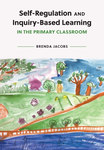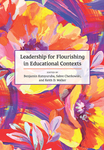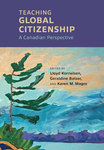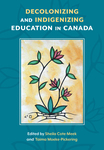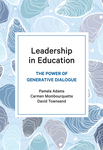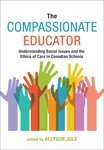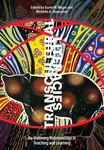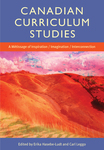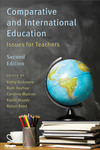We don’t actively support Internet Explorer
It appears that you are using Internet Explorer, which has been discontinued by Microsoft. Support has ended for versions older than 11, and as a result you may face security issues and other problems when using it.
We recommend upgrading to a newer browser such as Firefox, Google Chrome, or Edge for a much better experience across the web.
While this site may work with Explorer, we are not testing and verifying it, so you may run into some trouble or strange looking things.
Teaching in the Anthropocene
Education in the Face of Environmental Crisis
Edited by Alysha J. Farrell, Candy Skyhar, Michelle Lam

Subjects
EducationJuly 2022
Print ISBN: 9781773382821
Overview
This new critical volume presents various perspectives on teaching and teacher education in the face of the global climate crisis, environmental degradation, and social injustice. Teaching in the Anthropocene calls for a reorientation of the aims of teaching so that we might imagine multiple futures in which children, youths, and families can thrive amid a myriad of challenges related to the earth’s decreasing habitability.
Referring to the uncertainty of the time in which we live and teach, the term Anthropocene is used to acknowledge anthropogenic contributions to the climate crisis and to consider and reflect on the emotional responses to adverse climate events. The text begins with the editors’ discussion of this contested term and then moves on to make the case that we must decentre anthropocentric models in teacher education praxis.
The four thematic parts include chapters on the challenges to teacher education practice and praxis, affective dimensions of teaching in the face of the global crisis, relational pedagogies in the Anthropocene, and ways to ignite the empathic imaginations of tomorrow’s teachers. Together the authors discuss new theoretical eco-orientations and describe innovative pedagogies that create opportunities for students and teachers to live in greater harmony with the more-than-human world. This incredibly timely volume will be essential to pre- and in-service teachers and teacher educators.
FEATURES
- offers critical reflections on anthropocentrism from multiple perspectives in education, including continuing education, educational organization, K–12, post-secondary, and more
- includes accounts that not only deconstruct the disavowal of the climate crisis in schools but also articulate an ecosophical approach to education
- features discussion prompts in each chapter to enhance student engagement with the material
Table of Contents
Acknowledgements
Learning to Teach on the Edge of the Anthropocene, Alysha Farrell, Grace Stone, Candy Skyhar, & Michelle Lam
Part Ⅰ: Challenges to Teacher Education Practice and Praxis
Chapter 1: Weaving Critical Education Perspectives in Teaching for Social and Ecological Justice, Kyra Garson
Chapter 2: Schools and Communities: Interdisciplinary Learning and the Ecological Crises of the Anthropocene, Xavier Fazio
Chapter 3: Recognizing and Addressing Influential Root Metaphors: The Key to Reorienting Teaching and Teacher Education in the Anthropocene, Liza Ireland
Chapter 4: “Country” Is My Gender, the Good Girl, and Ecojustice Education, Karleen Pendleton Jiménez & Kelly Young
Chapter 5: Indigegogy: Using Indigenous Ways in Teaching, Stan Wilson
Chapter 6: Listening, Witnessing, Connecting: Histories and Storytelling in the Anthropocene, Heather E. McGregor, Jackson Pind, & Sara Karn
Part Ⅱ: The Affective Dimensions of Teaching in the Face of the Earth’s Decreasing Habitability
Chapter 7: To Love and to Teach Other People’s Children in the Face of the Climate Crisis, Alysha Farrell
Chapter 8: What Good Is a Poem When the World Is on Fire?, Maya T. Borhani & Adrian M. Downey
Chapter 9: Hope in Action as a Pedagogical Response to Climate Crisis and Youth Anxiety, Breanna C. Lawrence, Tim Skuce, & Rebecca E. Hudson Breen
Chapter 10: Nurturing Embodied Agency in Response to Climate Anxiety: Exploring Pedagogical Possibilities, Maria Vamvalis
Part Ⅲ: Relational Pedagogies in the Anthropocene
Chapter 11: Embodying Ceremony as Pedagogy: The Role of School Administration in Reconceptualizing Indigenous Education in the Anthropocene, Kiera Brant-Birioukov & Gail Brant-Terry
Chapter 12: Plantation Logics and STEM Economics: Make Kin as Education for Multispecies’ Flourishing, Steven Khan, Douglas D. Karrow, Hang Thi Thuy Tran, & Stéphanie La France
Chapter 13: Challenging Complacency in K–12 Climate Change Education in Canada: Decolonial and Indigenous Perspectives for Designing Curricula beyond Sustainable Development, Jeannie Kerr & Sarah Amsler
Chapter 14: Of What’s Now and What’s Next: Poetry, Narrative, and Reimagining Teacher Education(s) beyond Received Anthropocentric Chauvinism, Robert Nellis
Chapter 15: Growing Rural Capacity for Responding to the Anthropocentric Exigencies of Our Time, Candy Skyhar
Chapter 16: Looking the Gift Horse in the Mouth: Climate Refugees and the Role of Education in Promoting Inclusivity, Michelle Lam
Part Ⅳ: Igniting the Empathic Imaginations of Tomorrow’s Teachers
Chapter 17: Unsettling Climate Education: The Youth Are Waking Up and Walking Out. As Educators, How Do We Join Them? Jenalee Kluttz
Chapter 18: ENVIROdigiART in the Age of the Anthropocene: A Reorientation of Teaching and Learning in Digital Artistic/Scientific Practices across the Curriculum, Joanna Black
Chapter 19: Deep Listening, The Sojourners Collective: Irene Friesen Wolfstone, Margaret Korlak, Leslie Wakeman, & Mary Louise Chown
Chapter 20: Teaching Geography Education in the Anthropocene: Focusing on Settler Colonialism, Slow Violence, and Solidarity Building in New Brunswick through DIY Art Production, Casey Burkholder
Chapter 21: Wasteland Climate Anxiety: Meaningful (Teacher) Education, Kathy Sanford, Darlene Clover with Kay Gallivan & Kate Brooks-Heinimann
Children’s Voices Calling Us to Action at the Edge of the Anthropocene, Michelle Lam, Candy Skyhar, Alysha Farrell, & Grace Stone
Glossary of Terms
Author Biographies
Index

